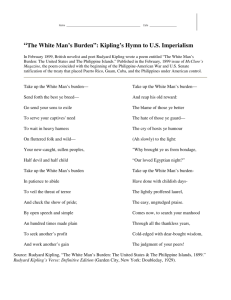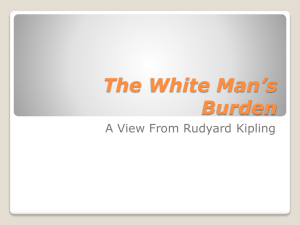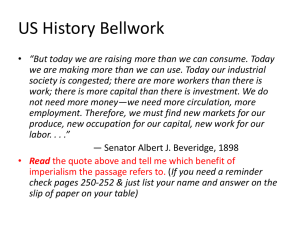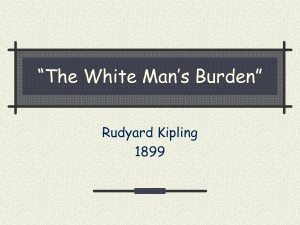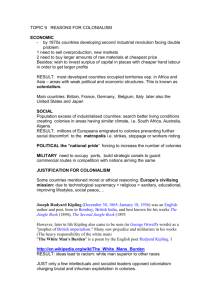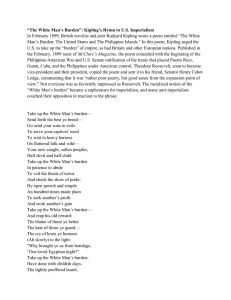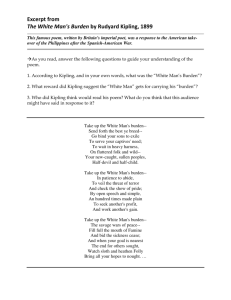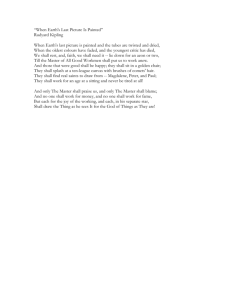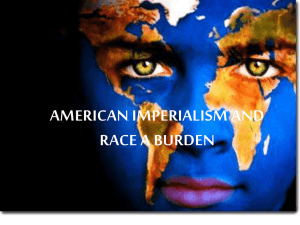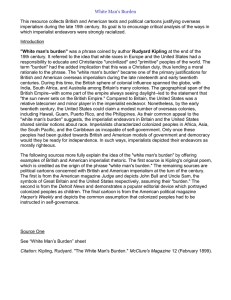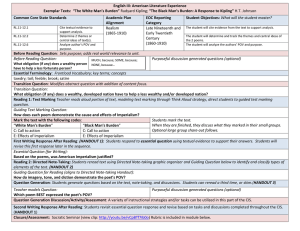The British Rule of India
advertisement
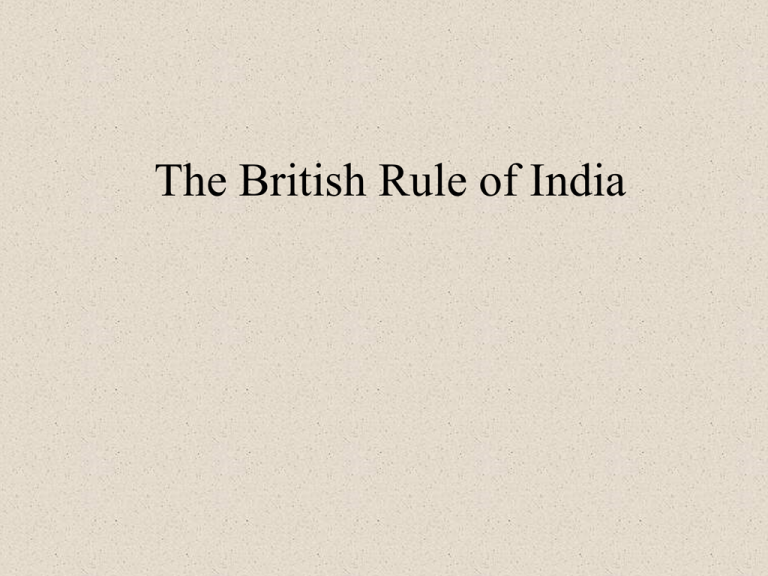
The British Rule of India The British Empire The Devilfish in Egyptian Waters How did the British rule India? • It wasn’t a sudden process • The British • Took over from the declining Mughal Empire • A trading relationship at first Kicking India around How did the British rule India? • Began to take over taxation of people – Used the same system as the Mughal empire • Promised “protection” • In 1850: 300,000 men in army. • 100,000 British men ruling over 200 million Indians Two Views of Indian Life Two views of Indian Life Gandhi Spinning Cloth The 1857 Rebellion • Called the “Sepoy Rebellion” • Problem over loading bullets • Lasted for over a year • Indians rallied behind the aging Mughal emperor Picture of Sepoy rebellion From “Punch” Magazine: Benjamin Disraeli gives Victoria her new crown The Queen With Two Heads “No, Benjamin. It will never do! You can’t improve on the old Queen’s Head!” Honoring the empress Justice! “I hope they understand them better than we did back then” Rudyard Kipling The White Man’s Burden By Rudyard Kipling Take up the White Man's burden Send forth the best ye breed Go bind your sons to exile To serve your captives' need; To wait in heavy harness, On fluttered folk and wild Your new-caught, sullen peoples, Half-devil and half-child. Take up the White Man's burden-The savage wars of peace-Fill full the mouth of Famine And bid the sickness cease; And when your goal is nearest The end for others sought, Watch sloth and heathen Folly Bring all your hopes to nought. Take up the White Man's burden-In patience to abide, To veil the threat of terror And check the show of pride; By open speech and simple, An hundred times made plain To seek another's profit, And work another's gain. Take up the White Man's burden No tawdry rule of kings, But toil of serf and sweeper The tale of common things. The ports ye shall not enter, The roads ye shall not tread, Go mark them with your living, And mark them with your dead. Take up the White Man's burden And reap his old reward: The blame of those ye better, The hate of those ye guard-The cry of hosts ye humour (Ah, slowly!) toward the light:-"Why brought he us from bondage, Our loved Egyptian night?" Take up the White Man's burden-Ye dare not stoop to less-Nor call too loud on Freedom To cloke your weariness; By all ye cry or whisper, By all ye leave or do, The silent, sullen peoples Shall weigh your gods and you. Take up the White Man's burden-Have done with childish days-The lightly proferred laurel, The easy, ungrudged praise. Comes now, to search your manhood Through all the thankless years Cold, edged with dear-bought wisdom, The judgment of your peers! Kipling’s “White Man’s Burden” • According to Kipling, and in your own words, what was the "White Man’s Burden"? • What reward did Kipling suggest the "White Man" gets for carrying his "burden"? • Who did Kipling think would read his poem? What do you think that this audience might have said in response to it? • How do you feel about the poem? If you were a citizen of a colonized territory, how would you respond to Kipling? “Mr. President . . . God has not prepared the Englishspeaking and Teutonic peoples for a thousand years for nothing but vain and idle self-contemplation and selfadmiration. No! He has made us the master organizers of the world to establish system where chaos reigns . . . He has made us adepts in government that we may administer government among savage and senile peoples . . . He has marked the American people as His chosen nation to finally lead in the regeneration of the world. This is the divine mission of America . . . The Philippines are ours forever. We will not repudiate our duty in the archipelago. We will not abandon our opportunity in the Orient. We will not renounce our part in the mission of our race, trustee, under God, of the civilization of the world.” United Stated Senator Albert J. Beveridge, 1899 Areas under British control 1836 Areas under British control 1857 Areas under British control 1919-1947
